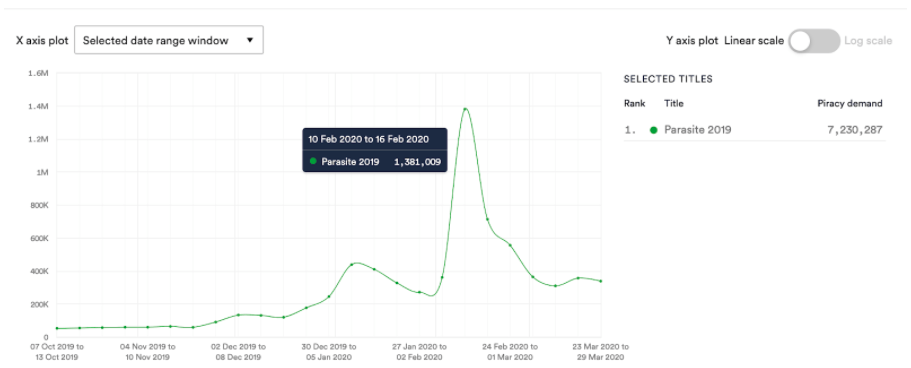The Oscars is the most watched award show of the year, closely followed by hundreds of millions of movie fans around the world.
The 93rd Academy Awards ceremony was originally scheduled to take place on February 28, but due to the Covid pandemic, it was postponed to late April.
After the nominations were announced earlier this month to movie press has been buzzing. There’s a clear absence of blockbuster titles in the best picture category, so various options are considered. The bookies currently have “Nomadland” and “The Trial of the Chicago 7” as the top favorites.
Legal Availability of Oscar Contenders
Unfortunately, however, not all movie fans are able to join this discussion. While all contenders have premiered in the United States, not all countries are that lucky. For example, Nomadland has yet to premiere in the UK, Canada, France, and many other countries.
This is a problem for fans who are eager to watch the film. They have no other option than to wait or resort to unauthorized sources. This is what the UK piracy tracking firm MUSO noted as well this week.
“When a title is not available in a country or region, the audience will find it via piracy because piracy is often driven by access; this is evident in social-media commentary,” MUSO writes, sharing various examples.
MUSO looked at the popularity of all best picture nominees on pirate sites until mid-February. It found that, until then, “Promising Young Woman” was pirated the most while “Judas and the Black Messiah” had the highest peak on a single day. Needless to say, these numbers are in part boosted by lacking legal availability.
Piracy Peak Has Yet to Come
While piracy is already widespread, history tells us that the real piracy boom has yet to come. Looking at last year’s best picture winner “Parasite,” we see that the demand on pirate sites skyrocketed right after it won an Oscar on February 10th.
This isn’t a new phenomenon as we have previously shown how Oscar winners see rising interest from pirates. That said, this massive peak could have been much lower if people from all over the world were able to watch the film legally.
With this in mind, the piracy interest for this year’s winner is expected to be significant as well, MUSO predicts.
“If Parasite, which was widely released prior to the Oscar ceremony on February 10th, experienced significant piracy after its nomination, MUSO data suggests that 2021’s nominees will experience similar piracy demand. This demand will be magnified by the lack of availability in some countries.”
Window of Missed Revenue Opportunity
Overall, the lacking availability may lead to dozens of millions of extra downloads and streams on pirate sites. While these don’t translate to direct losses, it’s easy to see how release delays can cost many millions of dollars.
“This is a lot of lost revenue due to a windowing decision,” MUSO notes.
Based on its own data, MUSO predicts that the best picture Oscar will go to either “Judas and the Black Messiah” or “Promising Young Women.” However, that’s purely based on the demand from pirates, which is far from an ideal predictor.
The overall takeaway message from the data is that Hollywood may seriously want to consider whether release delays do more harm than good.
 The Oscars is the most watched award show of the year, closely followed by hundreds of millions of movie fans around the world.
The Oscars is the most watched award show of the year, closely followed by hundreds of millions of movie fans around the world.






